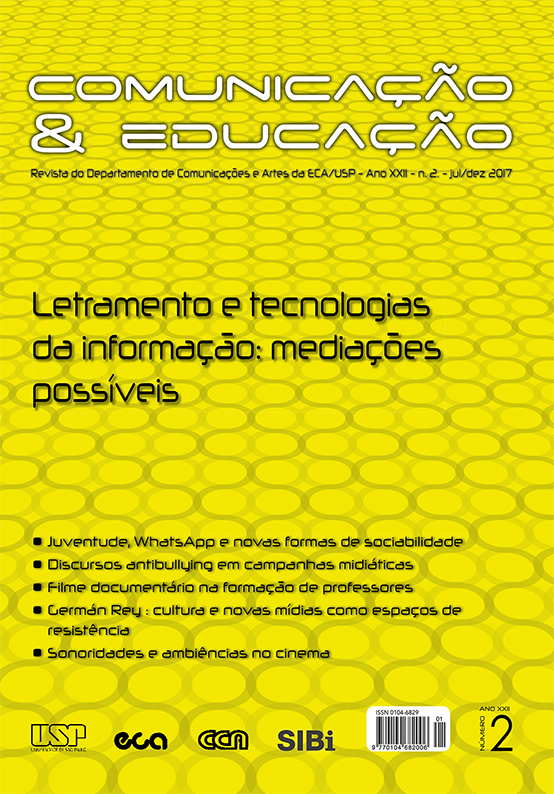Digital literacy and the strategies for the Development of competences in Distance Learning (ODL): perspectives from the resource center of Maputo, Mozambique
DOI:
https://doi.org/10.11606/issn.2316-9125.v22i2p95-108Keywords:
digital Literacy, Distance Education, skills, techno-literacyAbstract
The purpose of this article is to present a brief reflection on digital literacy of distance education students (EaD) of the Maputo Resource Center, Catholic University of Mozambique. It is intended to understand, above all, how the digital literacy of the students of the online course occurs and how it is understood by them. It is a basic qualitative research because it seeks to understand the phenomena in their natural environment, without any kind of manipulation. It is also a bibliographic and documentary research because it was elaborated through theoretical references and government guidance documents from Mozambique, which elucidate the main policies of the TDIC (Digital Information and Communication Technology) in EaD. In general, it was possible to perceive in this study that educating for “techno-literacy” is one of the major challenges of education in the XXI century, since we live in a society that migrated from the geographic (physical) environment to the virtual environment offered by the Internet, which radically changed the dynamics of relations that involve information exchange. In this context, the Internet and networked communication have brought new languages and tessitura of texts mediated by the TDIC.
Downloads
Downloads
Published
Issue
Section
License
I authorize the publication of the submitted article and soon the copyrights to the magazine, in the printed and electronic version, if it is approved after the evaluation of the reviewers.
I understand that readers may use this article without prior request, provided the source and authorship are mentioned. Readers are not authorized to use this article for reproduction, in whole or in part, for commercial purposes.

































